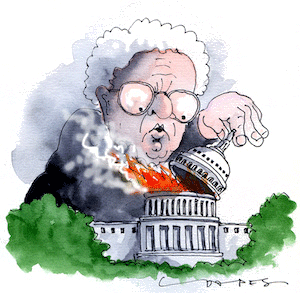A gangster in the White House
SCOTUS rules on Electoral College voting ... Sexual identity and civil rights ... Native-American reservations ... Dreamers ... Presidential tax records ... The power of theocrats and churches ... Some helpful rulings, others less so ... Justice Department habitually supporting Trump's personal battles in court ... Curious belief that a mentally unfit president could be reelected ... Maybe it is possible ... Roger Fitch reports from Washington
 The 2019 supreme court term has ended. Here's who won and who lost.
The 2019 supreme court term has ended. Here's who won and who lost.
First the good news.
"Faithless electors" can be punished; the decision was unanimous - dealing with situations where members of the Electoral College seek to defy the will of a state's voters.
In a Louisiana case, the court ended non-unanimous jury verdicts in state felony trials. Linda Greenhouse was fascinated by the hidden agendas revealed in the individual opinions.
In Bostock, a majority supported a literal reading of the Civil Rights Act of 1964 so as to cover sexual identity and orientation. The conservative Trump appointee Neil Gorsuch joined the court's liberals and wrote the opinion. The Atlantic recounts the fortuitous presence of the word "sex" in American anti-discrimination law.
Bostock will affect overtly discriminatory Health and Human Services regulations recently announced by Trump and under legal attack, but religious zealots hope to use their claims to circumvent the new ruling. Some observers suspect Gorsuch laid landmines in Bostock to further future conservative initiatives.
In Indian Country (as we say) there was the momentous McGirt decision, again featuring Justice Gorsuch, who affirmed the enduring validity of Native-American reservations covering vast areas of eastern Oklahoma.
In the DACA decision (Trump v NAACP), Chief Justice Roberts joined the court's liberals in finding that the Trump administration's efforts to abolish President Obama's Deferred Action for Childhood Arrivals failed, not because it couldn't be done, but because of the sloppy way it was attempted.
Citing respect for precedent, the newly-fluid CJ also joined a liberal majority in June Medical Services v Russo, striking down a Louisiana abortion restriction almost identical to one found unconstitutional by a differently-composed court in 2016.
READ THE REST HERE.




No comments:
Post a Comment